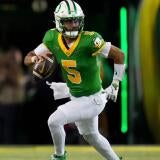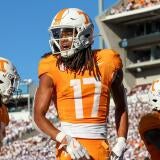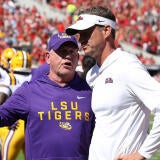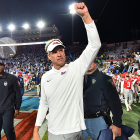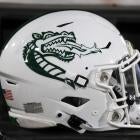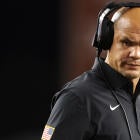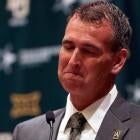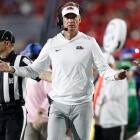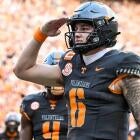As college football coaching carousel spins, discussion of representation takes a new twist
Advocacy groups and emerging pipelines aim to boost representation as college football faces unprecedented turnover
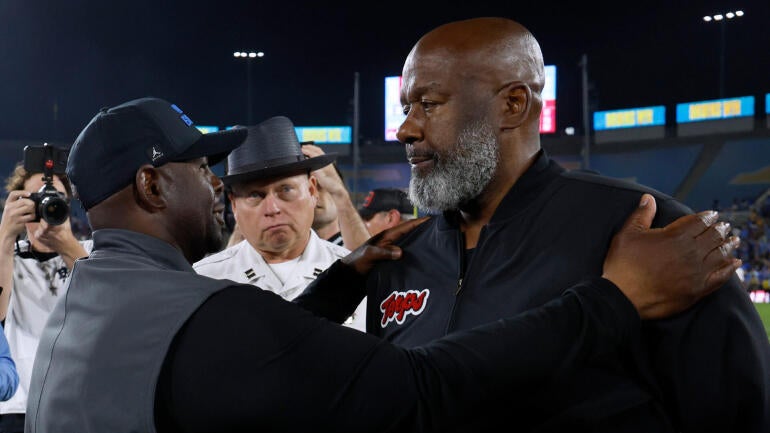
The 2025 coaching carousel could be a catalyst for change in the racial diversity of major college football's head coaching ranks. This silly season is shaping up to be the wildest ever with industry sources estimating at least 40 jobs could come open when the dust settles.
Downstream effects on the cycle, which already has seen a slew of some of the biggest buyouts in the sport's history, should open more jobs than usual. However, there is uncertainty within the coaching industry about how the national political climate -- where some diversity, equity and inclusion programs were rolled back or outright eliminated in the public and private sectors -- will bleed into college athletics.
Of the 11 jobs currently open, four were previously held by Black men, putting a serious dent in already paltry numbers.
At two of those jobs, Penn State and UCLA, Black interim coaches Terry Smith and Tim Skipper have respectively taken over to finish the season. LSU has promoted Frank Wilson, who is Black, to interim coach for remainder of the season following the dismissal of Brian Kelly. Before Kenni Burns was fired at Kent State in April, 14 of 136 FBS head jobs were held by Black men, according to an NCAA demographics database, while 104 were held by white men and 18 were held by what the NCAA defines as "other."
"The numbers are so low, especially at the Power Four level, I don't see them getting much worse," an executive at a coaching search firm told CBS Sports. "They really can't."
Numbers at the head coaching level have never been reflective of the players they lead. According to the database, the composition of players at the FBS level are 32.1% white, 49.3% Black and 18.5% other. According to Axios citing NCAA data, Division I football roles held by people of color between 2012 and 2022 showed increased diversity at every level of the sport from players to assistant coaches -- except head coaches.
"I make a choice every day: Do I carry bitterness, or do I carry belief that diverse leadership makes teams stronger?" said Van Malone, Kansas State assistant head coach/defensive backs.
Malone is a veteran assistant coach and a board member of the Minority Coaches Advancement Association. "So, I've got to continue to push that, right? I have to understand that, in our locker room, on the sideline, that diversity is reflected. So, I have to continue to make sure I put myself in positions to do things the right way, so that I can be a model for how it has to work for all coaches, not just African-American coaches, but for all coaches. And you just pray, man, that one day that pays off.
"But yes, there is frustration. There's frustration in the African-American coaching community."
This coaching cycle will be the first with the backdrop of the Trump administration's DEI crackdown, which has affected over 50 universities across the country as the Department of Education investigates them for "racial preferences and stereotypes in education programs and activities."
President Trump has said his administration "will terminate every diversity, equity, and inclusion program across the entire federal government." He signed executive orders attacking DEI initiatives from the first day of his second term.
Universities across the country have struck deals with the Trump administration to halt Justice Department scrutiny into university affairs. At Virginia, where the athletic director and head football coach are both Black, president James Ryan resigned over the summer rather than "fight the federal government in order to save my own job." Former Michigan president Santa Ono was not confirmed for the same position at the University of Florida after a three-hour hearing in which he was grilled about his past support of DEI programs while in Ann Arbor.
Within this climate, where does a coaching advocacy group find itself? Maryland coach Mike Locksley spent part of the COVID-19 pandemic lockdown reflecting on the type of legacy he'd like to leave behind. That reflection led to the creation of the National Coalition of Minority Football Coaches, which had a mandate to prepare, promote and produce minority coaches at all levels of football. Raj Kuchadkar, a former civil rights attorney, runs the organization day-to-day as executive director.
"There's the big 'A,' advocacy, and the small 'A,' advocacy," Kuchadkar said. "The big A is systemic where you're pushing policy things, and then there's the small A, where we're advocating for our individual coaches, our members.
"We spend a lot more emphasis and time on the small A and advocating for our coaches and showing their skill sets and the capabilities than we do going to Capitol Hill or NCAA conferences and meetings and convincing different groups and committees that they need to change X, Y, Z."
Locksley hatched his coalition in the wake of a groundswell of support across the country for diversity initiatives, a movement that stemmed from flashpoint moments of 2020 like the murder of George Floyd. The Big Ten began an annual trip from Selma to Montgomery, visiting the site of the 1965 Bloody Sunday march. The SEC launched numerous diversity initiatives, including observing the Juneteenth holiday. Coaches and athletic department staffers across the country marched with players and heard their concerns. But while some programming, including the Big Ten's annual trip, remains, the pullback from DEI initiatives in the corporate world is being felt within college athletics.
As a stipulation of membership to the NCAA, schools had previously been required to submit documents signed by high-ranking school officials attesting to a review of DEI policies and programming within their athletic department. It was one of nine attestations required of each NCAA member school. Penalties for not doing so could result in fines or restricted membership status.
In February 2025, the NCAA waived that requirement, noting that over 20 states and the Federal government had passed legislation that could be violated if schools complied with the NCAA requirement.
"There's definitely been a pullback," Kuchadkar said. "The environment changed quite significantly in the last five years, and we do have less sponsors now going into 2026 than we did the previous five years.
"Being a civil rights attorney, it's a pendulum. It swings back and forth, and something's going to happen. I don't know if it's going to be a year from now or two, three years from now, but it's going to catch people's attention, and the pendulum is going to swing the other way. But yeah, the environment, I'll be honest with you, is not easy for us. I spend more time trying to raise money now than I did five years ago."
While their biggest partners (Under Armour and SAP) are still behind them to the tune of hundreds of thousands of dollars, smaller donors are pulling back. Kuchadkar says that is because of the optics of being associated with DEI initiatives and not because of dollars and cents.
The coalition's work has always been difficult: The speed of coaching searches and the multilayered nature of hiring processes can make the practice of emphasizing diversity slip through the cracks.
One job may be using a search firm, while another may have the athletic director doing things themselves, another has boosters meddling and another has a search committee of former football players and coaches who are really in charge. There is no exact equation for hiring in a talent-based industry in which nepotism and cronyism run rampant.
The coalition has 2,100 coaches at all levels and an annual convention with 500 attendees networking. But their flagship program is the Coalition Academy, which pairs up-and-coming coaches with an athletic director for a two year mentorship program. Former graduates include Malone, as well as head coaches Jerry Mack (Kennesaw State), Tony Elliott (Virginia), Willie Simmons (FIU) and Notre Dame's Marcus Freeman, who is the first Black and the first Asian coach to reach the College Football Playoff or BCS Championship Game.
The 2026 class:
- Reggie Barlow (Tennessee State head coach)
- Aaron Henry (Illinois defensive coordinator)
- Alonzo Carter (Arizona assistant head coach/ running backs coach)
- D'Anton Lynn (USC defensive coordinator)
- Quincy Wilson (Weir High School head coach)
- Brian Williams (Jacksonville State defensive coordinator)
- Brandon Moore (University of San Diego head coach)
- Ricky Brown (Navy special teams coach)
- Travis Williams (former Arkansas defensive coordinator)
- Tony White (Florida State defensive coordinator)
- Marcus Brady (Chargers passing game coordinator)
- Brennan Marion (Sacramento State head coach)
- Trei Oliver (North Carolina Central head coach)
- Alex Atkins (LSU interim offensive coordinator/tight ends coach)
Locksley looks at the positives of the emerging pipeline of minority players, who have played the sport at the professional level and decided to give coaching a try. Deion Sanders helped open the door for coaches Eddie George, DeSean Jackson and Michael Vick. Jackson's Delaware State and Vick's Norfolk State met for the first time on Oct. 30, resulting in a 27-20 win by Jackson's Hornets.
It doesn't always go well -- Ed Reed's short-lived run at Bethune-Cookman comes to mind -- but Locksley has long quipped that major college football coaches aren't so much hired as they are elected, and in that way, fame can go a long way to winning the race.
"The name recognition that comes along with [those coaches] are the things that, as athletic directors look to say, 'How do we create revenue? How do we create buzz? How do we create branding?'" Locksley said. "A lot like what you see in the NBA and Major League Baseball and some of these other sports, you're starting to see, you know, that some of these guys that have really strong brands and were really big-time players are now imparting their knowledge in the game as head coaches.
"Those are wins for them when you can announce a Deion Sanders as your next head coach when he has success. Because again, if he didn't have success, it would have made it hard for Eddie or DeSean or Michael to get these opportunities."
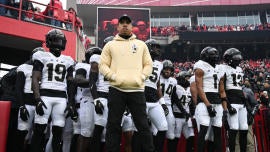
Coalition leadership has been clear that they do not direct any school to hire a specific coach. What they do is send a letter hoping to have dialogue with decision-makers when a job comes open to surface candidates for consideration for whatever criteria is provided. They have done so for many of the currently open jobs and are advocates for the minority coaches in interim spots to be retained.
It's all in service of increasing diversity so that, one day, those with headsets on the sidelines look a lot more like those with helmets on the field.
"I don't believe that representation is a luxury; I think that representation is a responsibility," Malone said. "Those of us in the coaching world, that's what we're here for -- to, of course, win games -- but we're here to impact the young people that we coach. And it's just, for many years, the number of head coaches and leadership hasn't reflected the diversity that's happening on that field."


